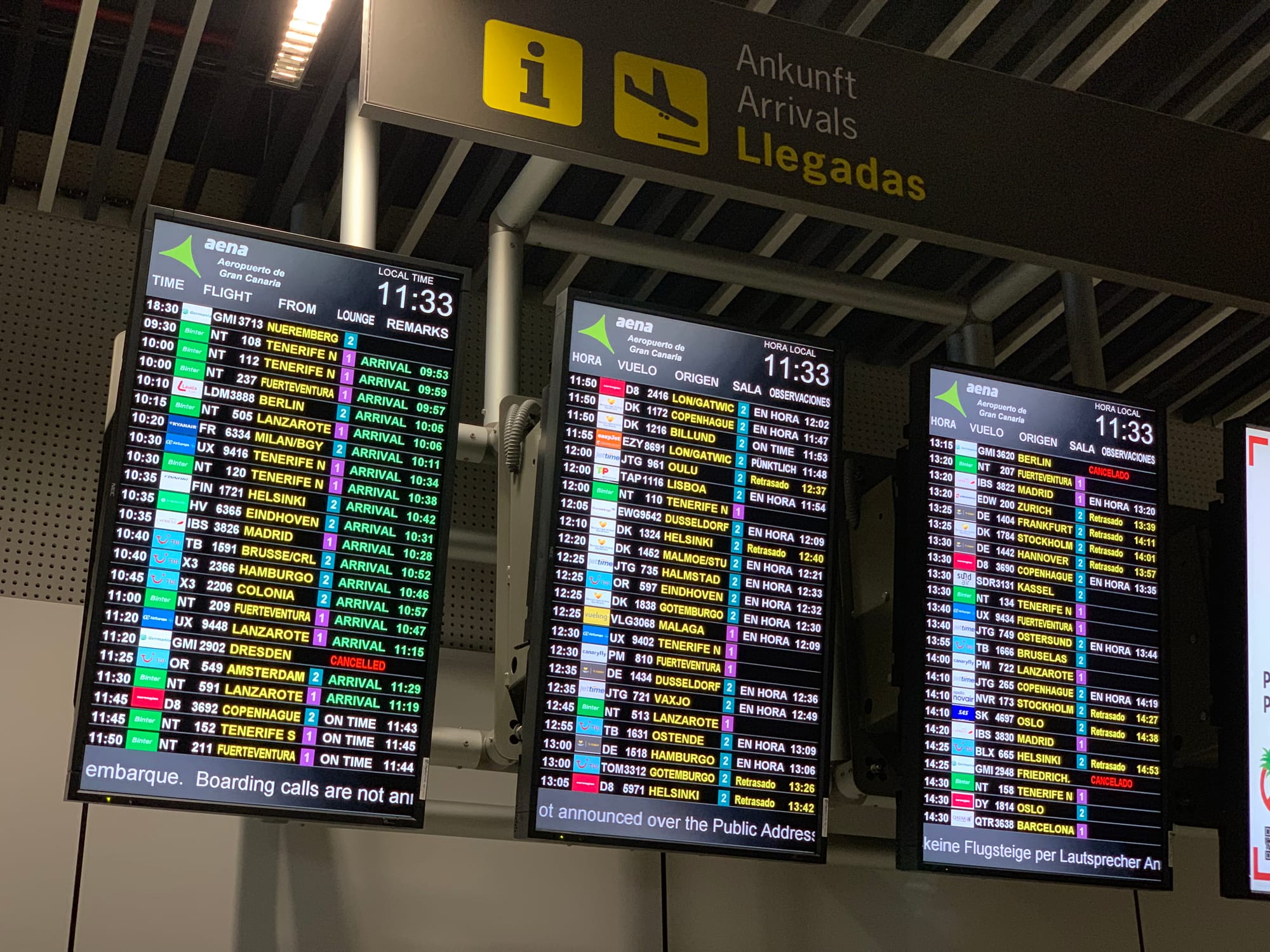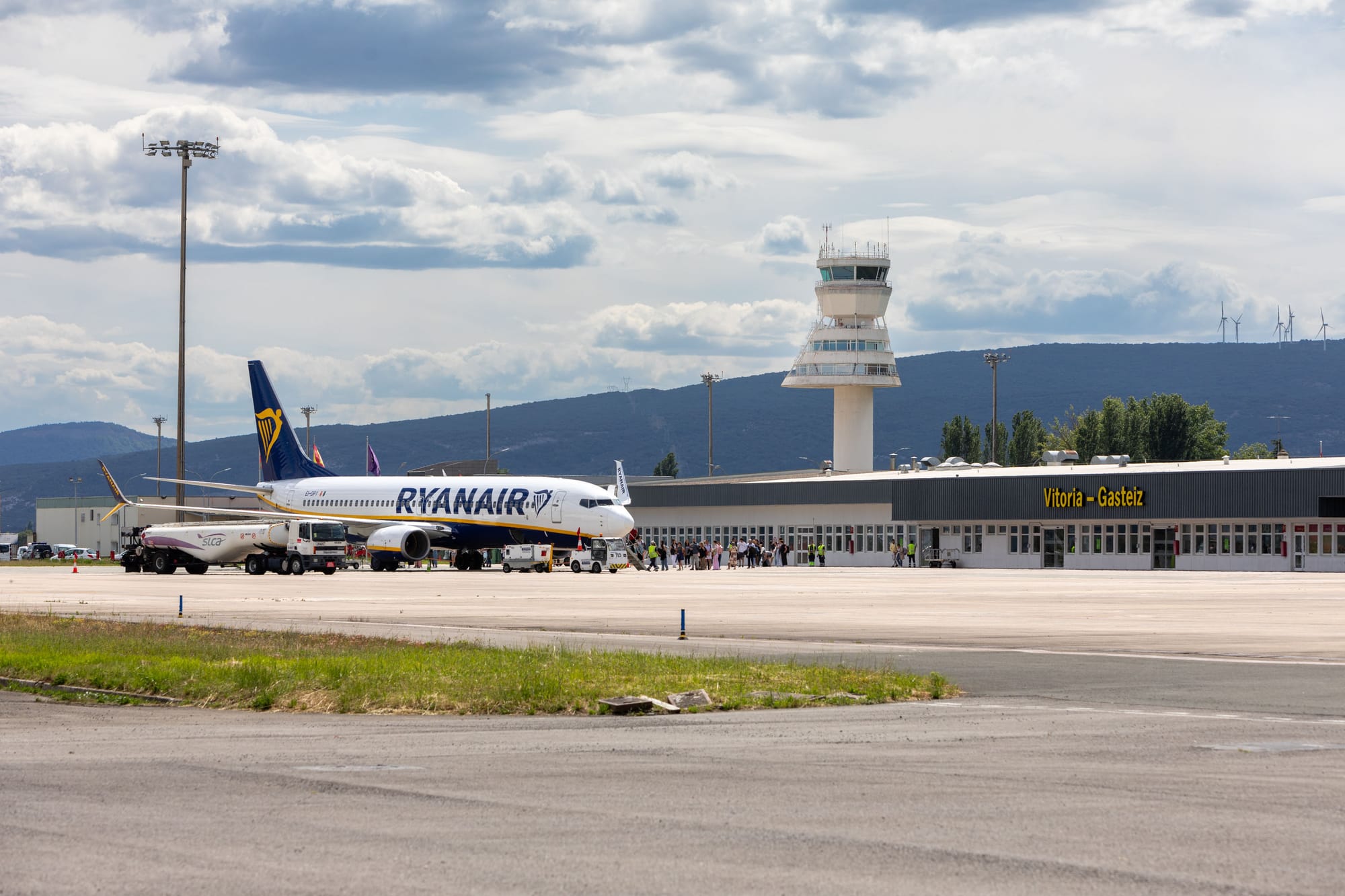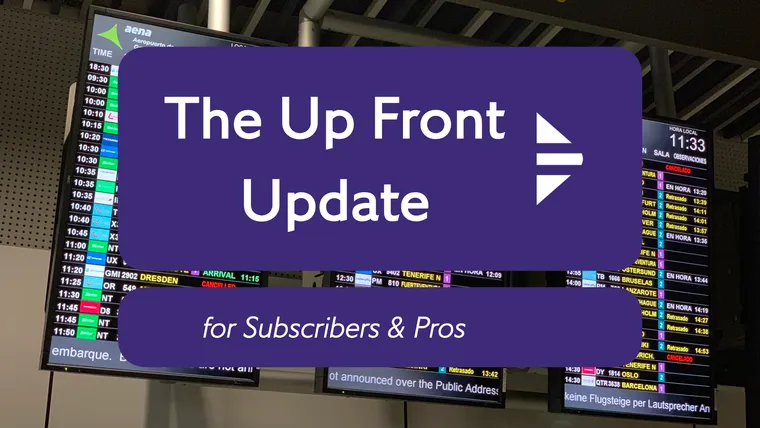We’re back from a quick overnight trip to Toulouse this week for the unveiling of Air Côte d’Ivoire’s first Airbus A330neo, which was an incredibly informative journey — in terms of what the aircraft means for the airline, for the country, for the region, and for the wider industry. More soon before we head off to Vienna for the RedCabin Business Jet & VIP Interior Innovation Summit this coming week.
In the meantime, there’s a lot going on around the industry, with unusual narrowbody operations from Austrian and Qatar, Expliseat’s super-dense seats arrive on Air France’s HOP E190s, and Swiss’ odd set of service updates in advance of Swiss Senses arriving.
The big thing to note this week: Spanish national airport operator AENA and Ryanair aren’t mincing words in their multilingual slanging match about airport costs, monopolies, “blackmail”, and business ethics
Ryanair has never been one to hold back in media statements, with regular and often over-the-top denunciations of various actors not playing their part in the aviation industry in the way that it would like: airport operators, regulators, governments, various parts of the European Union, air traffic control operators, trade unions… the list is long and often feels ever-increasing.
But it’s all too rare that one of the targets of Ryanair’s media attacks fights back, so the response from Spanish airport operator AENA, a 51%-publicly owned body that runs most of the airports in the country, is unusual in many ways.
This week, Ryanair announced winter cuts to its Spanish network and bases on Wednesday, with reductions to regional Spain by 41% and to the Canaries by 10%, citing a 6.62% increase in fees.
AENA fired back later that day with a genuinely blistering statement arguing, among other things, that its fees increase was only €0.68 per passenger, and denouncing Ryanair’s actions and business practices.
Ryanair responded on Thursday calling for AENA’s president to “calm down”, a thing that has very rarely in human history happened as the result of such a demand.

The strength of AENA’s response — in multiple languages, with a 66-page attached dossier [PDF] — isn’t just in its size, but in its ferocity and its willingness to call a spade a “whining, cajoling and unbearable extortionist” spade.
“It would be hard to find in contemporary business history another case such as Ryanair where the dissonance between a company’s operational excellence and the dishonesty of its communications policy is so striking,” begins AENA, and it concludes by objecting to Ryanair’s “hypocrisy, rudeness and blackmail”.
The whole thing is well worth a read, including for the truly excellent line that “no supernatural demonic force compels Ryanair to be one of Aena's biggest customers and to sell its tickets to more than 60 million people travelling to and from Spain”.
Looking objectively, AENA has quite the point. Ryanair has long played airports off against each other — especially in the media and with governments — to secure what AENA calls “economic advantages”, which largely means lower costs to its operations.
In most European countries, where there is no national airport operator, the Ryanair strategy is, in effect, to play individual airports off against each other, cutting flights from those who reject their demands for, in essence, subsidies, even if disguised as lower landing fees or reduced airport charges.
AENA is one of the few operators, and thus Spain one of the few countries, that has the market clout to efficiently deny that: there’s little to no opportunity in Spain to do the equivalent of leveraging airports it can market as “Vienna (Bratislava)”, “Brussels (Charleroi)” or “Frankfurt (Hahn)” against the main airports serving those cities.

There is little love lost for Ryanair by passengers (as the Bluesky response to our post about AENA’s statement shows), and indeed it seems likely that AENA will be only too delighted to work with other airlines to restore connectivity. In the Canaries alone, Tenerife local paper El Dia is reporting that Canarian airline Binter, Iberia, and Wizz Air are all keen to take up the slack.
Indeed, it seems unlikely that many watergun-toting, tourist-squirting residents of Spain’s major destinations will be sad to see Ryanair’s disappearance, or likely to lobby their local politicos for action to keep the LCC on side.
If Ryanair wants to upset the balance between European regional air connectivity demand, tourism, airport operators, low-cost carriers, and governments — a balance it has long exploited to its own benefit — it may discover that it does not like the consequences.
This week on The Up Front:
Catch up with the big trends — and not just KPop Demon Hunters — from this northern hemisphere summer in commercial aviation and the passenger experience with the latest episode of our 40,000 Feet podcast.
For our Pro readers, don’t miss our in-depth update on what’s happening with Lufthansa’s Allegris cabins — where the non-suite business class seats are entirely blocked out on the 787s being delivered to Lufthansa right now, there’s more detail in its A380 and 747-8 plans, as well as what the airline is currently planning in its 2025–26 Allegris timeline.
Thanks to our advertiser, Unum
We designed The Up Front to be a pleasure to read and worth of your attention, so we don’t try to steal your focus with flashing ads, popups, popovers, autoplay videos, or anything else from the worst of the web.
You’ll only ever see one ad on any page or in any email: that’s our promise to you, and to our advertisers
Find out about advertising with us or contact our advertising team for pricing and to learn more.


